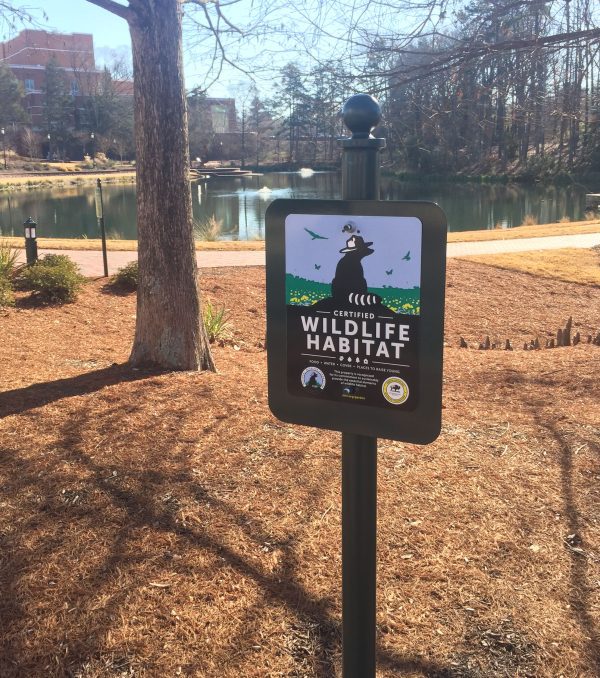Hechenbleikner Lake designated as a Certified Wildlife Habitat

The UNC Charlotte Hechenbleikner Lake is now designated as a Certified Wildlife Habitat by the National Wildlife Federation (NWF).
NWF, America’s largest wildlife conservation and education organization, recognized the university’s efforts to spearhead initiatives to create and maintain a space on campus that is wildlife hospitable.
For decades, the organization has certified sites including yards, schools, businesses, community gardens, parks and places of worship. Each site provides basic elements that all wildlife need to thrive – natural food sources, clean water, cover and places to raise young.
Certification also makes Hechenbleikner Lake part of the Million Pollinator Garden Challenge, a national effort to restore critical habitat for pollinators.
“We are so excited to have another passionate wildlife area join us by creating a Certified Wildlife Habitat. Over the last 40 years, nearly 200,000 wildlife gardens have joined NWF’s Garden for Wildlife movement and helped restore wildlife habitats right in our own yards and neighborhoods,” said David Mizejewski, naturalist with the National Wildlife Federation.
Hechenbleikner Lake is named for biology professor Herbert Hechenbleikner, who was recruited to the faculty by University founder Bonnie Cone. He is credited with the creation of the Van Landingham Glen, which is the basis for the University’s Botanical Gardens.
“The campus has developed many wonderful examples of areas that promote biodiversity from the Botanical Gardens to the student garden, and through the meaningful development of the campus’ landscape,” states Tyler Sytsma, University sustainability coordinator. “We hope, by establishing these designations, students, faculty, and staff become increasingly aware that the campus design reiterates the university’s mindfulness of how it interacts with nature, in addition to being aesthetically pleasing.”
The Facilities Management grounds team recently installed the new sign, which prominently promotes the certified habitat designation.